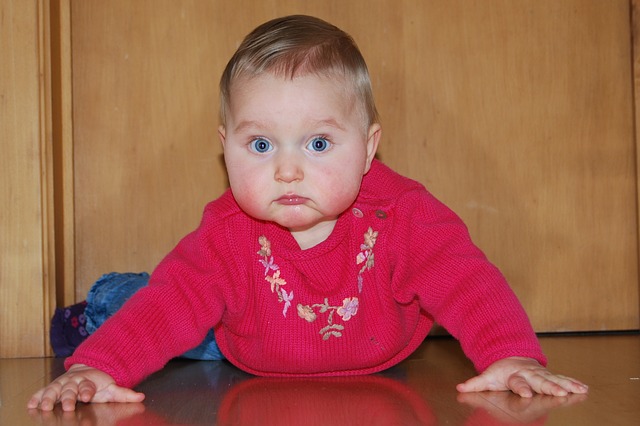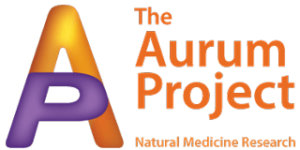International research papers written about homeopathy as a treatment for childhood eczema have generally come to a positive conclusion in answer to questions about the outcome of treatment, including quality of life questions and patient satisfaction. The papers agree that it is worthwhile to conduct more investigations because:
- there is potential for reduction in use of conventional drugs including topical steroid use
- the advantages of homeopathy being it is low cost and easy to administer with high patient acceptability
- patients also may see improvements in symptoms of seemingly unrelated medical conditions when their eczema is treated holistically
- there are economic advantages when parents decrease their visits to conventional health services
- children treated with homeopathy seem to show a reduced tendency to maintain skin problems and develop asthma (and allergic rhinitis) as an adult
What is eczema?
Eczema and dermatitis are the terms used to describe a common skin irritation that often runs in families. When a child and other family members have asthma and hay fever as well as eczema, then it is described as atopic dermatitis and this is a common form of child eczema.
What does eczema look like?
Generally the skin is dry and itchy, and some areas may look red and cracked. In an eczema flare up, the skin may weep fluid.
Nummular eczema, nummular dermatitis and discoid eczema all describe the same thing: a chronic eczema which has distinct coin shaped spots on the skin which may ooze fluid or become dry and crusty.
Seborrheic dermatitis/ eczema appears on the scalp with flaky scales but also can be found on other parts of the body.
Which areas are particularly affected?
Eczema on fingers: may be a contact dermatitis caused by allergens
Eczema on lips: may occur when people have eczema elsewhere
Eczema on face: an atopic family history may result in eczema in babies
Eczema on neck: in babies and children this may be worsened by dribbling saliva
Eczema on legs: when babies start to crawl you often see eczema on the fronts of their knees as the exposed skin comes into contact with carpet etc and in older children in the folds of knees

What can you do to reduce the dryness?
May different moisturisers and creams are available. Some people will react to some of them.
Many parents describe an ongoing search for a cream for babies and report that using coconut oil for eczema did not flare the skin as much as other creams. Deciding on a cream to use is an individual choice for each person.
What are possible eczema triggers?
- wool and rough fabrics e.g. carpets, seams and lace on clothes
- house dust mite in carpets can irritate some children
- chlorinated swimming pools
- sand
- 'medicated' and perfumed products
- soap, bubble baths and hot baths
- rapid changes of temperature
- getting hot in a car seat
- exercise to the point of sweating
- dry airflow from heating or air conditioning
Eczema treatment in modern medicine
In modern medicine, it is said that eczema cannot be cured but it can usually be controlled.
Because it cannot be cured using conventional methods this highlights the importance of research exploring the possibility of using homeopathic medicine as a treatment for eczema.
The Aurum Project is an Australian charity dedicated to improving the health and wellbeing of children through natural medicine and the study of eczema fits into our mission statement. We are currently in preliminary discussion about the design of a patient satisfaction survey about homeopathic treatment of childhood eczema.
Conclusions from international research
2020 A 44-year-old man was treated with homeopathy for eczema covering the face, neck, chest and hands. He was treated with the homoeopathic medicines sulphur and graphites without the aid of creams and steroids. It is clear that homoeopathy had a positive role in the treatment of eczema. The patient first developed eczema 3 years before this and he complained of itching with sticky watery discharge. The itching was aggravated by warmth and hot weather. His job was in an office with no significant history of chemical exposure. He was using an allopathic ointment for 2½ years with relapses occurring whenever he stopped using the ointment. He was also a chronic alcoholic and had been taking alcohol daily from 15 years and he was able to stop consuming alcohol after the homeopathic treatment had started. This is a single case report and the authors call for large-scale studies with different study designs regarding the treatment of eczema with homoeopathy.
2016 Research about short and long term results of homeopathic treatment found that 75.8% of atopic children had moderate or major improvement. At re-evaluation after 5-10 years, children with two or three atopic diseases at the first visit were completely cured in 40% of cases. The results seem to confirm that homeopathic medicine produces positive therapeutic response in atopic children.
2013 In Germany, one in five children visiting a homeopathic physician suffers from atopic eczema. So this Berlin study aimed to compare homeopathic vs. conventional treatment in the usual medical care of children with atopic eczema. After 36 months there was no significant differences in outcomes between the groups. The homeopathy group had twice as much contact with their physician and consequently the cost of the homeopathic treatment was higher. Costs were mainly driven by doctors’ fees. On average, the parents of the homeopathic group were older, had a higher income level and were better educated than the parents of the conventional group.
2012 In this study, patients spontaneously seeking homeopathic treatment were treated. Severity of disease was evaluated including severity, itch, general and psychological wellbeing and quality of sleep. Forty two patients were followed. This study suggests that in a general medical practice setting, homeopathic remedies could be regarded as an effective choice for patients with atopic dermatitis.
2012 Promising results came from a childhood study conducted over an eight year period in Italy. Preliminary results seem to confirm a positive therapeutic effect of homeopathy in children with atopic dermatitis and the children seemed to show a reduced tendency to maintain skin problems and develop asthma (and allergic rhinitis) in adult age.
2011 There are many cosmetic concerns for patients, including feelings of embarrassment and stigmatization as well as challenges to employment opportunities and interpersonal relationships. Therefore, natural treatment of eczema is of considerable interest among dermatologists. In this study, the researchers found that the participants’ severity scores substantially improved; participants also were able to reduce their use of conventional drugs for their skin disease. Potential advantages of incorporating homeopathic medicine in the conventional dermatology practice include low cost, availability, ease of administration, patient acceptability, and reduction in topical steroid use. Additionally, patients also may see improvements in symptoms caused by seemingly unrelated medical conditions when their eczema is treated holistically with homeopathic medicine.
2009 The patients with skin problems in this study suffered from long-term disease. The severity of disease and quality of life improved substantially and the uses of conventional medication and health services decreased markedly. This was a prospective observational study of 225 children who were allowed to continue conventional dermatology treatments while undergoing a 2-year homeopathic treatment.
2005 This study was conducted in 103 medical practices using homeopathy, in Germany and Switzerland, under everyday conditions. Data from all patients (age > 1 year) consulting the physician for the first time were observed. A total of 3,981 patients were studied. For adults and young children, major improvements were observed for quality of life, whereas no changes were seen in adolescents. Younger age and more severe disease at baseline were factors predictive of better therapeutic success. Disease severity and quality of life demonstrated marked and sustained improvements following homeopathic treatment period. Findings indicate that homeopathy may play a beneficial role in the long-term care of patients with chronic diseases.
2003 This study was conducted on seventeen patients with the most severe intractable atopic dermatitis. They were given individualized homeopathic treatment in addition to conventional dermatological therapy from 6 months to 2 years and 7 months. Although all of the patients had previously been treated with conventional medicine and various psychological approaches, their severe conditions had shown no significant sign of improvement. Using homeopathy, over 50% improvement was reported in overall impression and in their skin conditions by all patients, in itchiness by 15 of the patients, in sleep disturbance by 10 out of 13 patients, in satisfaction in daily life by nine out of 12, in fulfillment at work by seven out of 11 and in satisfaction with human relations by 10 out of 14.
===========================
This blog was first published in 2014 and was updated in April 2023.
Disclaimer: This information is for education purposes only. Please consult with your doctor or other health professional to make sure this information is right for your child with eczema.
